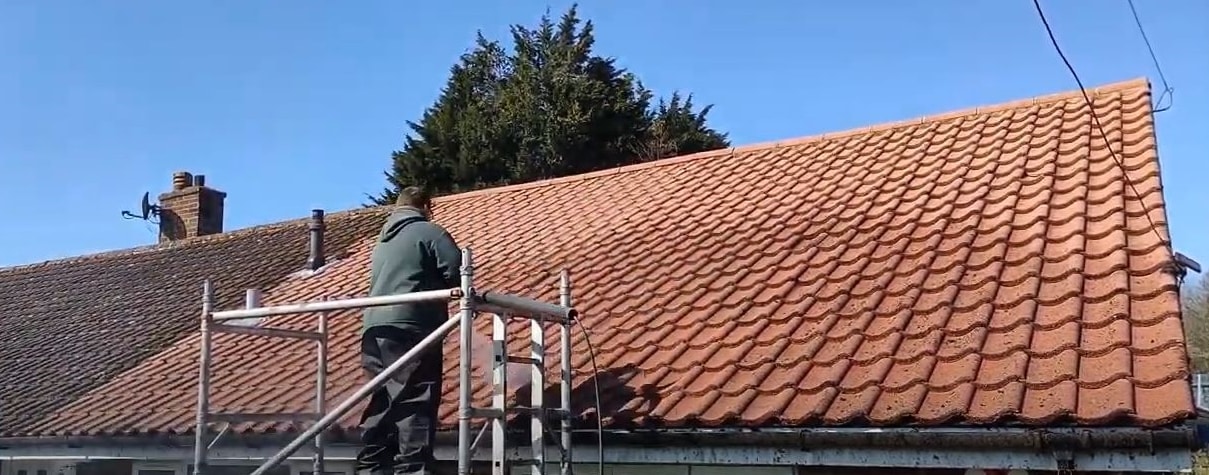How to check handyman contractor license in Florida
7 min read
Before hiring a contractor, ask to see their state-issued license. Then verify it.
Are you looking for a contractor?
Whether you want to remodel your home or need to get your roof repaired, finding the right person for the job isn’t easy.
How much will it cost? Will they do a good job? Did a friend or family member recommend them to you? And because Miami is, well, Miami, you might also worry about getting scammed. Will they actually finish the job or just take off with the money?
While not foolproof, you can do a few things to verify your contractor’s business before signing a contract.
Contractor license lookup
Before you call a company or a contractor for an estimate, and especially before you make a contract, find out if Florida requires a license for the type of work you want done. Then check to see if your contractor is licensed.
Why?
Licensed contractors have met a list of county and state requirements that show they know how to do the work properly. Licensed contractors are also required to have insurance and are regulated by the Florida Department of Business and Professional Regulation.
By law, any contractor licensed by the Florida Department of Business and Professional Regulation is required to include a license number in all advertising. However, don’t just take their word for it. Check their license status and insurance to make sure it’s still active.
To verify a contractor’s license, visit www.myfloridalicense.com or call 850-487-1395. You can also download the Department of Business and Professional Regulation mobile app. The license lookup lets you search by name, license number, city or county and license type. You can see if the license is current or if it’s revoked or expired, and check for license complaints.
To verify insurance, ask the contractor for proof of insurance (like a Certificate of Insurance) and then call the insurer to check that the policy is current and has enough coverage for your project.
The Office of Florida Attorney General Ashley Moody also recommends checking if contractors are bonded, which means they were given a surety bond by a third party company, and verify with the bonding agency. Think of it like an extra layer of protection: If something goes wrong in the project, and its the contractor’s fault, you won’t have to pay for the damages. The surety bond company will handle it.
READ NEXT: A con man stole $700,000 from a Florida city. Officials found out three weeks later
Keep in mind that Florida requires different licenses depending on the type of work the contractor will be doing. If you need a new roof, find a contractor with a roofing license. Building or repairing a swimming pool? You need a contractor with a swimming pool license.
What about certified general contractors?
While they can be contracted to build anything in Florida, they might not be able to do the work themselves.
“As a basic requirement, a general contractor must subcontract all electrical, mechanical, plumbing, roofing, sheet metal, swimming pool, and air-conditioning work” unless the contractor “holds a state certificate or registration in the respective sub-trade category,” Florida-based law firm Jimerson Birr wrote in a blog post.
Also, “be wary of individuals who only produce an “occupational license,” or corporate filing. An “occupational license” only means that the person has paid a tax receipt to the local municipality,” according to the Florida Department of Business and Professional Regulation.
Do roof, air conditioning, pool and plumbing repairs need a licensed contractor in Florida?
In Florida, contractors need a license to do work in a variety of areas, including roofing, air conditioning, swimming pool and plumbing. Some work doesn’t require a license, such as lawn maintenance or installing cabinets, or wood and tile flooring. However, some counties or cities might require contractors to have a local business tax receipt or certificate of competency for services that don’t require a state license, the state says.
What if it’s a small job?
“As of July 1, 2020, handyman jobs where the total construction costs are below $2,500 are exempt from State licensure requirements when the jobs are of a casual, minor, or inconsequential nature,” the department’s FAQ page states. “Check with your building department to see whether the jobs so qualify and whether there are any local licensing requirements. Typically, work requiring a permit is not of a casual, minor, or inconsequential nature.”

Registered and certified contractors in Florida: What’s the difference?
While searching for a contractor, you might find some that are “registered” and others that are “certified.” This is because Florida offers two types of licenses: registration and certification.
Registered contractors can only do work in cities or counties that have given them a contracting license. A registered contractor in Miami-Dade, for example, might not have a license to do contract work in Broward County.
Certified contractors, on the other hand, are allowed to work anywhere in the state.
Check a company’s BBB rating
If you’re thinking of hiring a company to fix your roof, expand your home or another pricey project, check to see what rating it has with the Better Business Bureau, or BBB, at bbb.org
The more than 100-year-old organization’s mission is to help people “find and recommend businesses, brands, and charities they can trust.” You can read reviews, see resolved and unresolved claims and check the company’s BBB rating (A+ to F or “No Rating” due to insufficient information). You can also see how long the company has been in business.
BBB reports on accredited and non-accredited businesses across the country and lets you filter search results by business name, business category (Example: auto repair, roof contractors) and by city, state and ZIP Code. If the company has a BBB accreditation, it means it met BBB standards and paid the accreditation fee.
While not foolproof, if the company is BBB-accredited and has an A or A+ rating, it’s usually a good sign.
TIPS:
▪ Besides the BBB, do an online search search for the contractor to see what results come up. Some companies might have a Yelp or Facebook page, where people can leave reviews, too.
▪ You can use other websites to help find a contractor, including Angi (formerly known as Angie’s List). However, if you use Angi, keep in mind contractors who advertise on the site will be the first to appear in search results, with the label “Angi Certified.”
Get a written estimate and read the contract
Once you’ve called a contractor, make sure to get a written estimate that includes the work the contractor will do, a list of the materials, the completion date and the total cost, according to the Florida Department of Business and Professional Regulation.
If you’ve decided on a contractor, make sure to get a written contract that includes a “precise description” of the work to be completed, including a completion timeline, list of materials, a completion date as well as cleanup info for when the work is finished, according to the Florida Department of Business and Professional Regulation.

The contract should also have the contractor’s name, street address, telephone number, state license number, and warranty agreements, including length, terms and resource, the department says.
If the contract involves general, residential and building contractors, it should also include a notice of consumers’ rights under the Florida Homeowners’ Construction Recovery Fund, according to the department.
READ NEXT: Construction company accused of building a $57,000 insurance fraud on Miami-Dade County
Watch for warning signs a contractor might not be licensed
The Florida Department of Business and Professional Regulation says red flags can signify a contractor isn’t licensed.
Those warning signs include:
▪ Advertising without a license number
▪ Wanting all or most of the money up front and only in cash. The person might also ask you to “write the check to them individually or to “cash.””
▪ The contractor gives a post office box address instead of a street address.
▪ The handyman tries to convince you that a permit isn’t necessary or that it’ll be cheaper for you to get the permit yourself.
▪ The contractor doesn’t want to give you a written contract.
And remember, if the deal sounds too good to be true, it probably is.
This story was originally published April 28, 2022 6:00 AM.








.jpg)